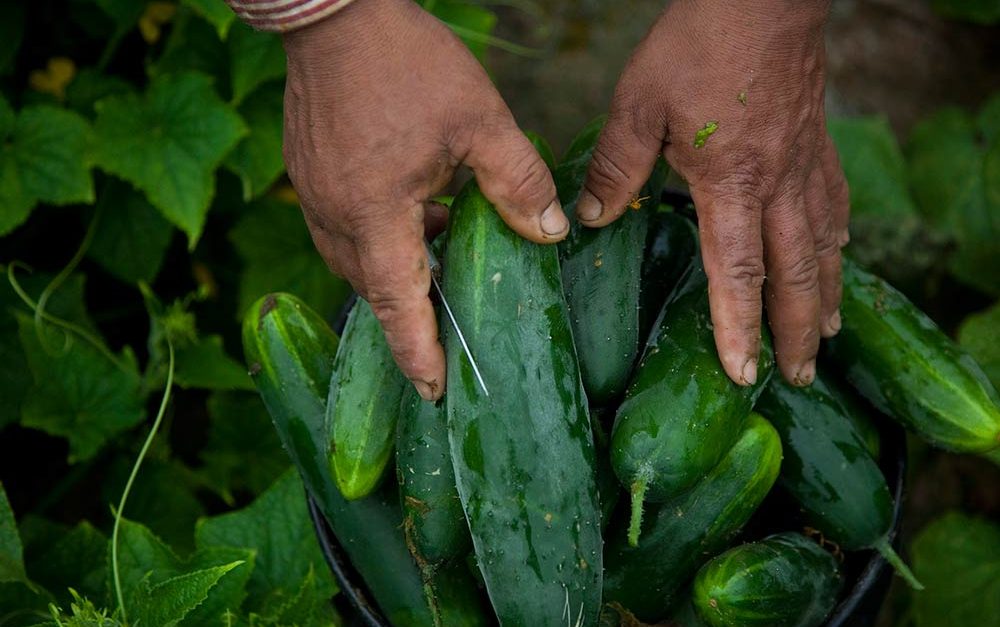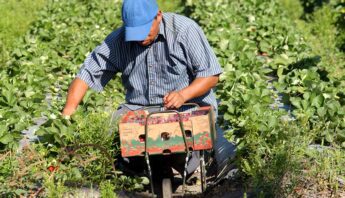Monday was a great day for the nation’s two million farmworkers and their families. On September 28, EPA released its long-awaited improved rules for the protection of farmworkers from on-the-job exposure to hazardous pesticides.
While we didn’t get everything we hoped for, the rules are now much, much stronger than they’ve been for the past 20 years. And that’s a real victory!
For years we’ve been working with farmworker advocates to improve the only rule in this country designed to protect farmworkers from exposure to hazardous pesticides. The federal Worker Protection Standard (WPS) was first implemented in 1995. EPA recognized its weaknesses and initiated an initial review way back in 2000.
I vividly recall the stakeholder meetings in California, Florida and Washington, D.C. Farmworkers, advocates and healthcare professionals all came together with data and stories to clearly and convincingly (so I thought) make the case that better protections were desperately needed to reduce the number of pesticide poisonings, workdays lost, and long-term health effects routinely experienced by farmworkers and their families, especially the most vulnerable among them — their children.
But alas, it took several administrations and persistent organizing by our national coalition before EPA administrator Gina McCarthy came through with the leadership needed.
Why so important?
Farmworkers have one of the highest rates of chemical exposure among any and all U.S. workers. They are regularly exposed to hazardous pesticides throughout their workday in various ways, from mixing or applying pesticides to planting, weeding, harvesting or processing crops.
Plus farmworkers often live in or near treated fields, and harmful pesticides can drift into their homes. Studies show that pesticides cling to workers’ skin and clothing long after they return home, putting their children at risk of long-term health impacts that result from exposure to toxic chemicals. Farmworker children may also be exposed by breathing in, touching or ingesting pesticides on food or in their homes and yards.
Health impacts of pesticides include both immediate impacts and long-term, chronic health effects such as cancer, Parkinsons’ disease, asthma, birth defects and neurological harms — including developmental delays and learning disabilities among children whose mothers were exposed during pregnancy.
Here are just a few highlights of what we won:
- Better training: Worker safety training must now be provided every year instead of every five years. Workers must be trained before they work in an area treated with pesticides.
- Access to information: Workers and their representatives must be provided timely access to information about the use, location and hazards of specific pesticides on the farm where they work. Employers must keep pesticide use records for two years.
- Youth protections: Youth under 18 may not apply pesticides.
- Emergency assistance: Employers must provide transportation to medical facilities and all relevant pesticide information in the event of a pesticide poisoning incident.
What comes next?
On the national call held by EPA officials on Monday when the new WPS was released, stakeholders were informed that EPA is planning to reach out to federal and state agencies — including health, agriculture, labor and more — to ensure the rule’s widespread implementation and enforcement. That’s good news. WPS implementation is the responsibility of agricultural employers, and they can use all the help they can get to fully understand their obligations under the new rules.
Enforcement, on the other hand, falls to the designated state agency in each state. PAN and our partners will keep our eyes on those agencies to ensure that this very important win translates into the on-the-job protections that farmworkers have waited so long to enjoy.
Photo Credit: Laura Elizabeth Pohl/Bread for the World








